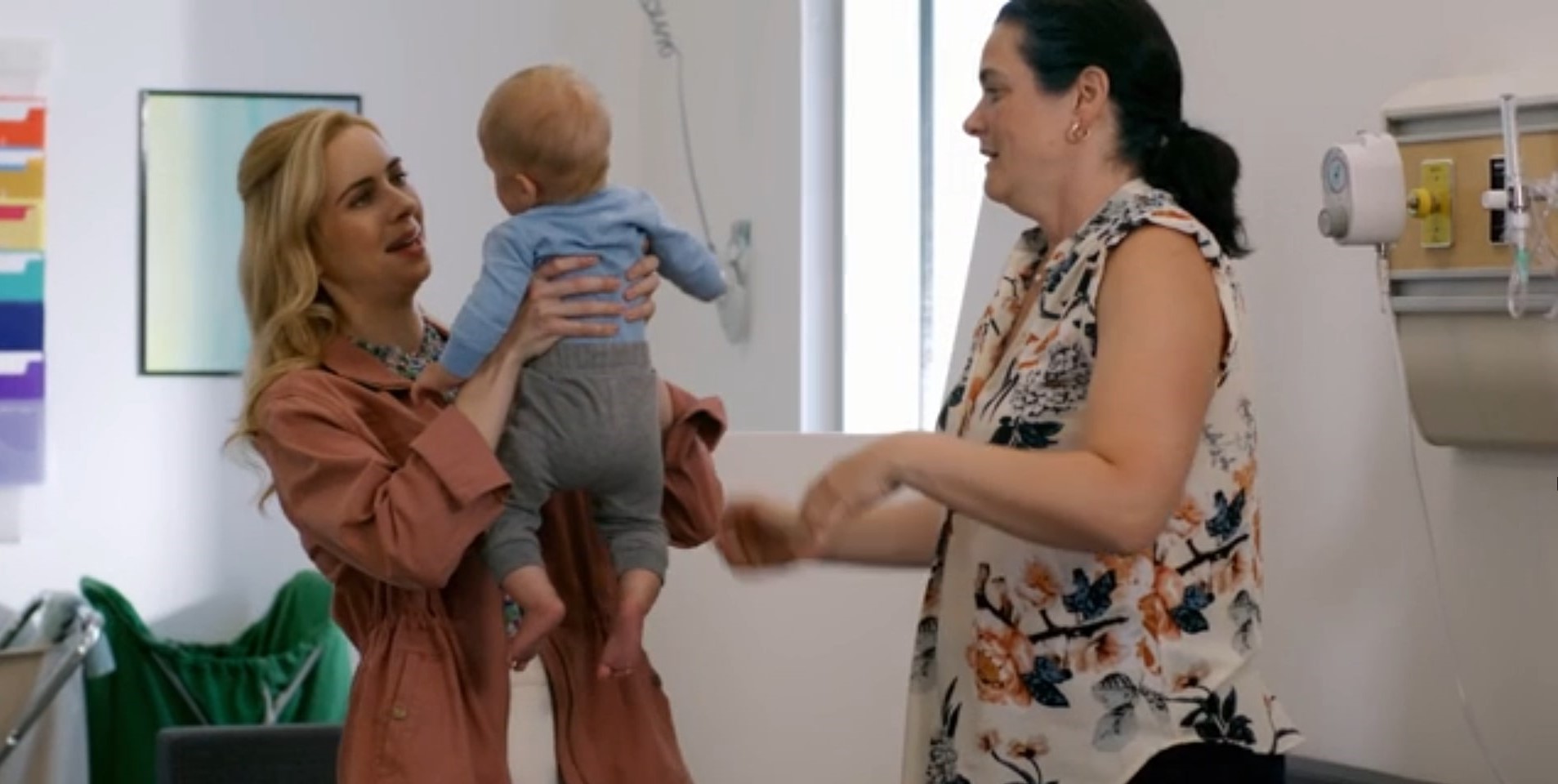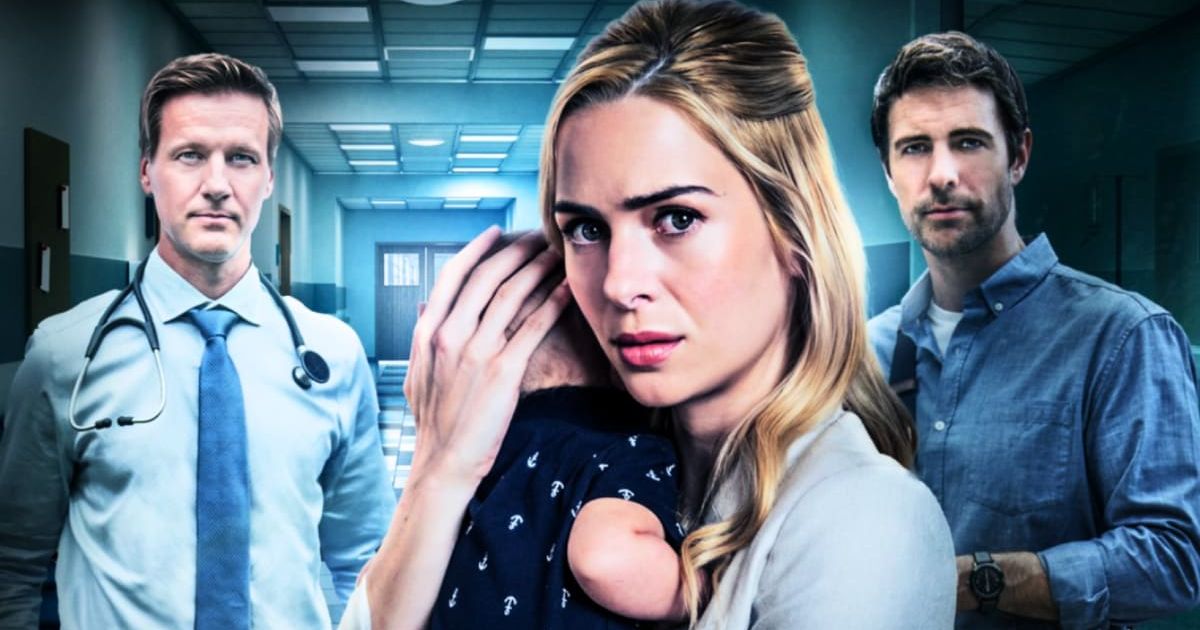Directed by Soran Mardookhi, ‘Cradle of Deception’ centers on Erin Treadwell, a single mother who rushes against the clock to find a donor to treat her baby’s rare genetic condition. In doing so, she uncovers a web of deceit spun by the fertility clinic where her child was conceived. Erin is blessed with motherhood through IVF treatment at a fertility clinic. However, when her baby’s rare genetic condition comes to light, she realizes that the clinic may have been involved in malpractice and deception. Erin’s journey for answers takes her on a disconcerting search, revealing the clinic’s misconduct stretching to other clients as well. Originally titled ‘Conceived in Lies,’ the Lifetime thriller touches upon themes regarding fertility treatments, which demand an exploration into its real-life inspirations.
Cradle of Deception is Inspired by Several True Stories
The Lifetime film’s narrative has its origins in real-life stories of IVF clinics mixing up their samples, switching embryos, and even propagating genetic conditions that they were meant to prevent. ‘Cradle of Deception,’ written by Hannah Robinson, isn’t based on one single true incident but draws parallels with several real-life stories.

Erin’s baby’s genetic condition in the movie is most likely based on the real-life case of Melissa and Jason Diaz. In 2023, the California-based couple sued their fertility clinic alleging impregnation of Melissa with an embryo with a deadly cancer gene. In 2018, Jason was diagnosed with gastric cancer and underwent chemotherapy and gastrectomy. After testing, it was concluded that Jason’s family had a history of gastric cancer, and he carried the CDH1 mutation that caused it. Not wishing for their child to go through the pain that Jason did, the couple said they approached the Pasadena-based clinic, HRC Fertility.
After discussing their concerns with the doctor, they chose IVF to have the embryos screened for Jason’s CDH1 mutation and Melissa’s BRCA-1 breast cancer mutation, per the lawsuit. The first procedure of impregnating Melissa with a completely healthy embryo reportedly resulted in a miscarriage. The second IVF was a success, and the couple welcomed their baby boy. However, in July 2022, Melissa received a copy of her embryo report, which changed everything for them. As per the lawsuit, “To her horror, Melissa also recognized the first embryo — clearly designated as carrying the mutant allele for hereditary diffuse gastric cancer — as the embryo transferred on January 8, 2021. Embryo #1 had become her beloved infant son.”
The couple claim that HRC Fertility presented them with falsified records that covered up which embryo had been transferred. “HRC Fertility’s falsified records from October 2022 are evidence of HRC Fertility’s knowledge of and intent to hide its misconduct,” their lawsuit stated. “HRC’s fraudulent concealment of material information to its customers — more particularly, the fact that HRC Fertility has a long history of misusing its customers’ biological material, in direct contradiction to its customers’ instructions.”
In their defense, HRC Fertility released a statement. “We take all of our patients’ choices and concerns very seriously and are committed to providing the highest quality of care,” the statement said. “We deeply empathize with this family’s situation. However, the patients associated with the case sought genetic testing and genetic counseling outside of HRC Fertility and with an outside party; they wished to have a male embryo transferred, which we carried out according to the family’s explicit wishes and in accordance with the highest level of care.” The case remains in Arbitration as of writing.
‘Cradle of Deception’ also has a storyline of Erin’s intended baby being switched at the IVF procedure stage. This part of the story may have been developed based on incidents of IVF mix-ups like that of Rishon Lezion’s Assuta Medical Center in Israel. Two women who were seated in the clinic’s waiting area for IVF seemingly went into the operating room in the wrong order, which resulted in a couple discovering that their newborn baby was not genetically linked to either of them. The couple sued the Rishon Lezion Hospital for $2.9 million over the incident, which became a national headline and caused the involvement of the Health Ministry.
The ministry sought to trace down the biological parents of the child, but the couple expressed their wish to keep the baby and vowed to fight tooth and nail if someone challenged their custody. The Health Ministry considered shutting down the IVF unit at Assuta but resolved to restrict the department’s operations by 50%, from 10,000 treatments a year to 5,000. A former hospital employee claimed that many issues of neglect have not been brought to light. Assuta’s IVF laboratory manager responded by saying that a certain percentage of women who undergo vitro fertilization carry an embryo that is not their own. The hospital vehemently denied the claims.
While ‘Cradle of Deception’ features a story invented by Hannah Robinson, its narrative draws from terrifying real-life scenarios of IVF going wrong. There are many such cases that narrate stories of IVF mix-ups and draw parallels with the movie’s story, raising concerns about the baby’s genetic health. As such cases gain widespread attention, many facilities have taken measures to restrict human errors by decreasing the volume of treatments, installing electronic systems to keep logs, and providing greater transparency.
Read More: Cruise Ship Murder: Is the Lifetime Movie Based on a True Story?


